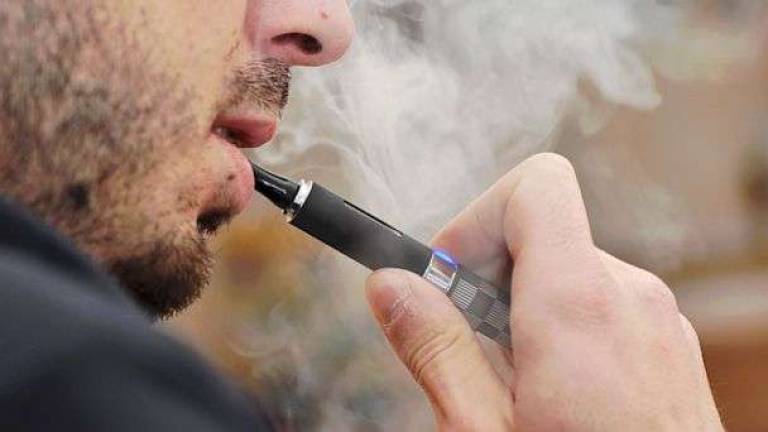Ecigs help smokers quit — but there's a catch

Frequent e-cigarette use does help smokers quit. But a recent national survey uncovers important clues about who’s successful at quitting and why.
The findings, published in Nicotine and Tobacco Research, examined a national survey of more than 24,500 current or recent former cigarette smokers, the largest sample of smokers studied to date. This study provides some of the strongest evidence so far on the link between use of e-cigarettes and cessation, says the study’s lead author David Levy, PhD, professor of oncology at Georgetown Lombardi Comprehensive Cancer Center.
Researchers support the use of e-cigarettes as a cessation aid for those trying to quit cigarette smoking. But Levy notes there are important nuances in the data that affect success.
“Both cigarette quit attempts and quit success were directly related to the number of days of e-cigarette use,” Levy said. “The odds of quit success increased by 10 percent with each additional day of e-cigarette use.”
The data also show that among those making at least one quit attempt, quit success was lower among individuals who had used e-cigarettes at some point in the past, but higher among those with at least five days of e-cigarettes use in the last month.
Levy and his Georgetown Lombardi colleagues examined the relationship between frequency of e-cigarette use, cigarette quit attempts and cigarette abstinence. Because of the dates of the survey, it includes the more current types of e-cigarettes that are more effective at delivering nicotine.
“Our findings are consistent with randomized trials and those observational studies that measure frequency of e-cigarette us," said Levy. "These results support the use of e-cigarettes — especially, consistent use — as an effective smoking cessation aid. Since e-cigarettes are generally estimated to have a small proportion of the mortality risks of cigarettes, this represents an important life-saving intervention that doctors can recommend when other forms of treatment fail."